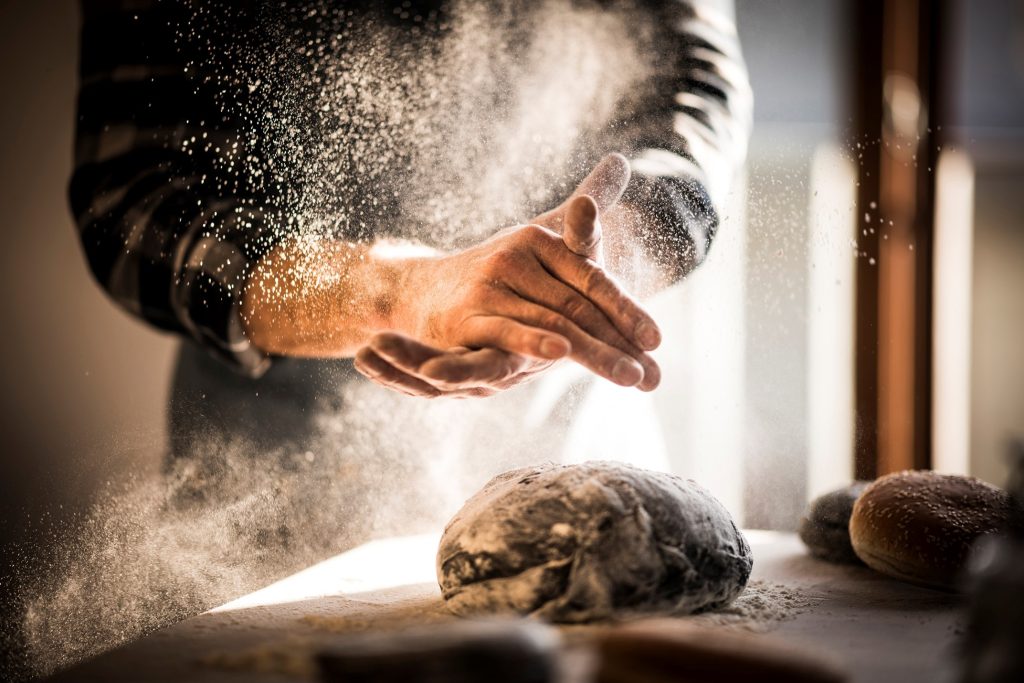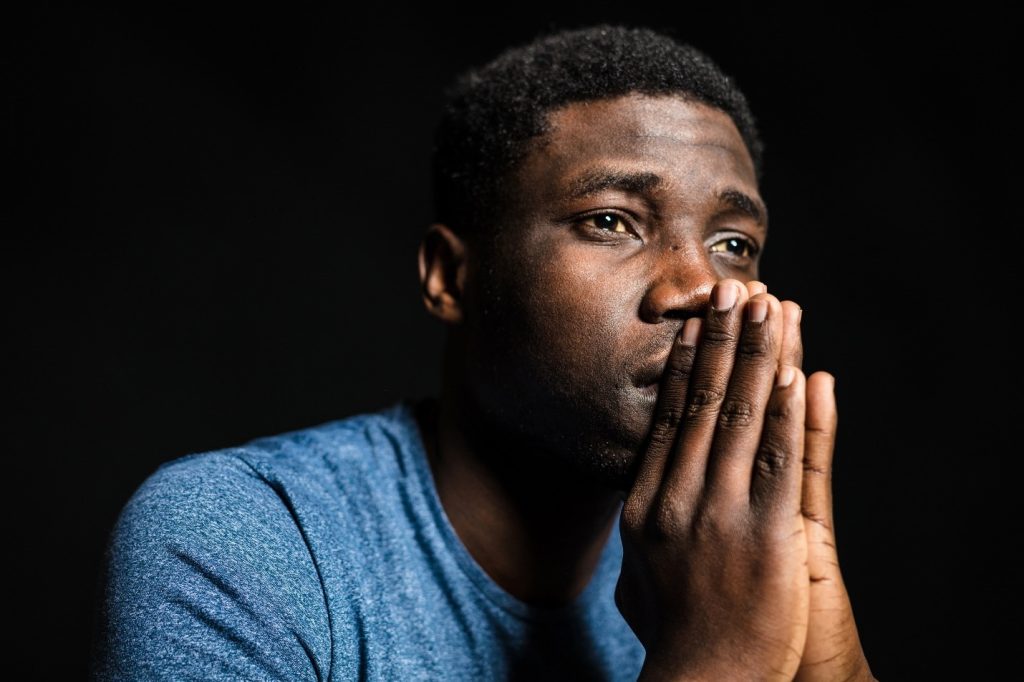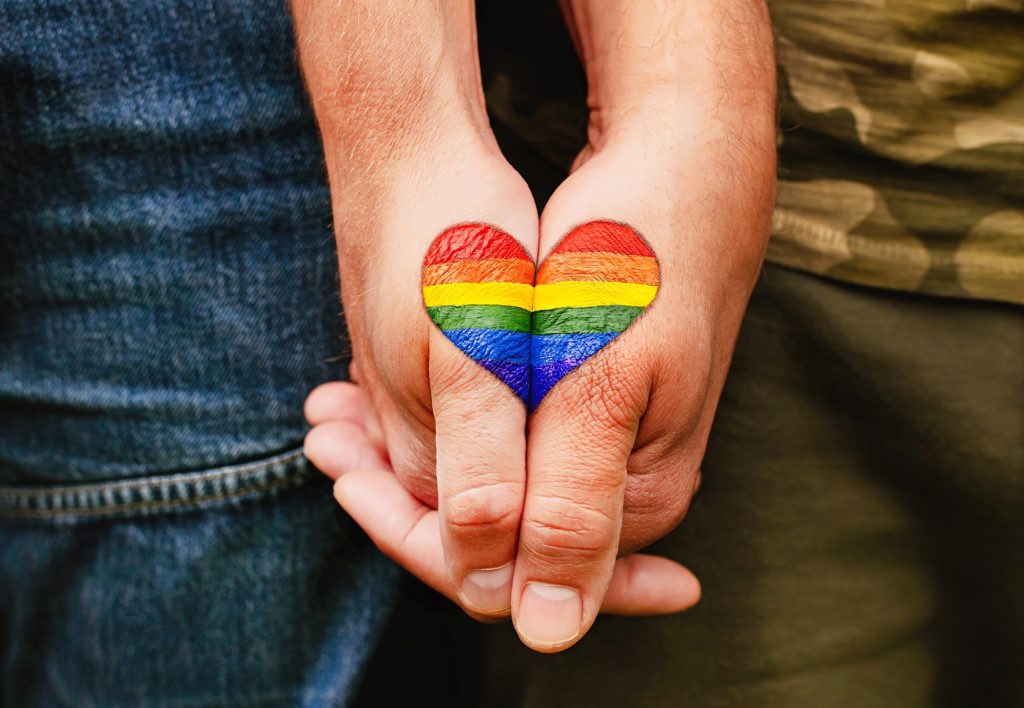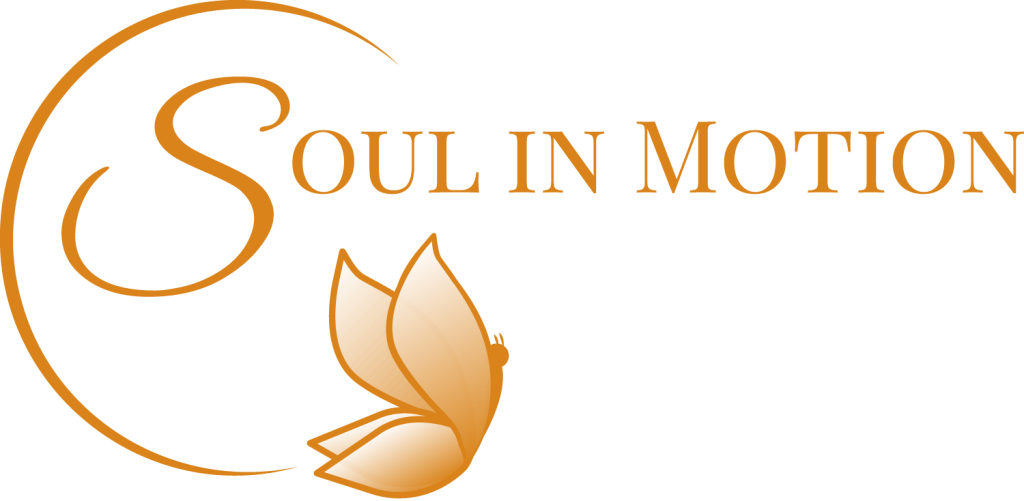
Learning to Trust Yourself: A Path to Inner Confidence
Do you second-guess yourself constantly, turning to others for reassurance? You’re not alone—but you can break free from self-doubt and start trusting your own wisdom. Here’s how.

Do you second-guess yourself constantly, turning to others for reassurance? You’re not alone—but you can break free from self-doubt and start trusting your own wisdom. Here’s how.

Ever notice how political news and social media can leave you feeling physically sick, anxious, or completely drained? You’re not alone. While it’s normal to feel stressed about politics, there’s a point where that stress can become something more serious.

Resilience isn’t about being unshakeable or never feeling anxious – it’s about your ability to adapt and bounce back from challenges.

Have you ever shared a difficult experience only to hear “Just think positive!” or “Good vibes only!”? While these responses might seem supportive, they’re actually examples of toxic positivity. Real optimism isn’t about denying difficulties – it’s about acknowledging challenges while maintaining hope.

Picture holding a butterfly that’s just emerged from its cocoon. Just as that butterfly must leave its old home to spread its wings, we sometimes need to leave relationships that shaped us to remain faithful to our own wellbeing.

Winter, with its hushed snowfall and early darkness, creates a natural pause in our typically bustling lives. This seasonal shift offers us a unique opportunity for deep emotional work and self-discovery.

Think of mindfulness as hitting the reset button on your busy brain. It’s about being here, now, instead of getting lost in the maze of “what-ifs” and “should-haves.”

Think of your body’s stress response like a home security system. When it works as intended, it protects you from danger. But what happens when that alarm system never turns off?

When the earth shifts beneath our feet, when the future of our home hangs in the balance, it’s natural to feel unsettled, anxious, even lost…It’s in these profound moments of uncertainty that existential questions can come flooding in. Who am I, really? What is the meaning of my life? Is there any hope for a better tomorrow?

Have you ever found yourself giving unsolicited advice to a friend? Or felt frustrated when someone you care about doesn’t follow your suggestions? If so, you’re not alone. Many of us have a strong impulse to “fix” the people in our lives. But where does this urge come from, and is it really helpful?

Trauma can deeply impact our lives, especially how we experience and give love – a powerful force in our lives that is not always experienced the same. Let’s explore how past hurts can make it hard to love and accept love without conditions, and offers ways to heal and grow.

Nature is more than just a beautiful backdrop; it is a powerful ally for our mental health and well-being.

Shame is a deep feeling that there’s something fundamentally wrong with us. It’s not just feeling bad about something we’ve done (that’s guilt) but feeling bad about who we are as a person.

Feeling anxious about setting boundaries is normal. But when you set them, you’re not just taking care of yourself – you’re creating the foundation for more authentic, fulfilling, and secure relationships.

Perfectionism is when we set extremely high standards for ourselves and feel upset when we don’t meet them. It’s like having an inner voice that always says, “It’s not good enough” or “You should have done better.”

Anxiety is like an overactive alarm system in your brain. It’s supposed to warn you about danger, but sometimes it gets a little too eager and starts ringing when there’s no real threat.

There’s a kind of hope that denies, suppresses, and belittles. And then there’s the hope that grows slowly, tenderly, from the cracks of your real life. This piece is an invitation to let down the first—and discover the second.

Living with pain changes more than your body—it shifts your sense of safety, connection, and even identity. I know because I live it. If you’ve ever felt unseen in your pain, this is for you. 💜

Sometimes we come to therapy thinking the real work will begin when we start talking about “the hard stuff.” But the truth is, for trauma survivors, the real work begins when safety starts to take root.

If the thought of having to relive your trauma in therapy feels overwhelming and scary, you’re not alone—and you have options. Discover gentle, proven approaches that can help you heal without forcing you to tell your story in painful detail or re-experience what hurt you.

Your body is constantly sending you information—but not all of it is your inner wisdom talking. Sometimes it’s old wounds getting triggered. This science-backed guide reveals how to tell the difference between gut intelligence and trauma responses, plus practical techniques to tune into your body’s sophisticated guidance system for better decision-making and emotional well-being.

Trauma comes in many forms—acute, chronic, and complex—each shaping how you see yourself and the world. Understanding the differences can help you take the first step toward healing

Ever notice how political news and social media can leave you feeling physically sick, anxious, or completely drained? You’re not alone. While it’s normal to feel stressed about politics, there’s a point where that stress can become something more serious.

Have you ever felt like your past experiences were trapped inside you, playing on repeat but impossible to express? Trauma has a way of jumbling our memories and emotions, making it hard to make sense of what happened. But when we begin to tell our story, we start picking up those pages, smoothing them out, and putting them in order.

During the trauma recovery process, our brain adapts to help us survive. Think of it as your mind’s protective mechanism kicking into high gear. Many people notice changes in how they react to certain situations, how they trust others, or how they handle stress. These changes aren’t character flaws – they’re natural responses to difficult circumstances.

Life experiences, especially tough ones, can really change how we think about and interact with food. Maybe you find yourself skipping meals when stressed, or perhaps you notice you eat more quickly when you’re anxious. These aren’t character flaws – they’re ways our bodies and minds have learned to cope with difficult situations.

Picture holding a butterfly that’s just emerged from its cocoon. Just as that butterfly must leave its old home to spread its wings, we sometimes need to leave relationships that shaped us to remain faithful to our own wellbeing.

Winter, with its hushed snowfall and early darkness, creates a natural pause in our typically bustling lives. This seasonal shift offers us a unique opportunity for deep emotional work and self-discovery.

When the earth shifts beneath our feet, when the future of our home hangs in the balance, it’s natural to feel unsettled, anxious, even lost…It’s in these profound moments of uncertainty that existential questions can come flooding in. Who am I, really? What is the meaning of my life? Is there any hope for a better tomorrow?

Trauma bonding is when you develop a strong emotional attachment to someone who is hurting you, even though you know the relationship is bad for you. It might seem strange, but trauma bonding is actually very common.

Trauma can deeply impact our lives, especially how we experience and give love – a powerful force in our lives that is not always experienced the same. Let’s explore how past hurts can make it hard to love and accept love without conditions, and offers ways to heal and grow.

Complex trauma is a deep and lasting form of hurt that can affect many parts of a person’s life. It’s different from other types of trauma because it happens over and over, often starting when someone is young.

Nature is more than just a beautiful backdrop; it is a powerful ally for our mental health and well-being.

Imagine standing at the edge of a vast forest, where one towering tree stands out among the rest. This tree represents your family lineage, the roots ancestors stretching deep into the ground.

What if there was a way to heal trauma without having to directly confront the traumatic events? Recent advances in trauma therapy have shown that it’s not only possible but can be highly effective.

Many of us believe that if we ignore our trauma, it will eventually fade away on its own. But does this approach really work?

Trauma is like an emotional injury. Just as our bodies can be injured, our minds and emotions can be wounded too. Trauma happens when we go through something so upsetting or frightening that it overwhelms our ability to cope.

Your body is constantly sending you information—but not all of it is your inner wisdom talking. Sometimes it’s old wounds getting triggered. This science-backed guide reveals how to tell the difference between gut intelligence and trauma responses, plus practical techniques to tune into your body’s sophisticated guidance system for better decision-making and emotional well-being.

Your people-pleasing isn’t a character flaw—it’s your nervous system’s learned survival strategy that once kept you safe but may now be keeping you small. The exhaustion, resentment, and physical symptoms you’re experiencing aren’t signs you’re broken; they’re your body’s way of asking you to come home to yourself.

What if your burnout isn’t a sign that you’re doing too much, but that you’re being too little of yourself? What if the exhaustion is your inner self staging a revolt, demanding that you stop abandoning yourself in favor of everyone else’s comfort?

Self Reclamation Therapy isn’t about fixing what’s wrong with you—it’s about gently finding your way back to who you’ve always been underneath it all. Through embodied, relational work that honors your pace and your wisdom, we create space for the parts of yourself that are ready to come home.
What does it feel like to reconnect with your authentic self?

Have you ever felt like your past experiences were trapped inside you, playing on repeat but impossible to express? Trauma has a way of jumbling our memories and emotions, making it hard to make sense of what happened. But when we begin to tell our story, we start picking up those pages, smoothing them out, and putting them in order.

Picture holding a butterfly that’s just emerged from its cocoon. Just as that butterfly must leave its old home to spread its wings, we sometimes need to leave relationships that shaped us to remain faithful to our own wellbeing.

Winter, with its hushed snowfall and early darkness, creates a natural pause in our typically bustling lives. This seasonal shift offers us a unique opportunity for deep emotional work and self-discovery.

Think of your body’s stress response like a home security system. When it works as intended, it protects you from danger. But what happens when that alarm system never turns off?

When the earth shifts beneath our feet, when the future of our home hangs in the balance, it’s natural to feel unsettled, anxious, even lost…It’s in these profound moments of uncertainty that existential questions can come flooding in. Who am I, really? What is the meaning of my life? Is there any hope for a better tomorrow?

Trauma bonding is when you develop a strong emotional attachment to someone who is hurting you, even though you know the relationship is bad for you. It might seem strange, but trauma bonding is actually very common.

Complex trauma is a deep and lasting form of hurt that can affect many parts of a person’s life. It’s different from other types of trauma because it happens over and over, often starting when someone is young.

Shame is a deep feeling that there’s something fundamentally wrong with us. It’s not just feeling bad about something we’ve done (that’s guilt) but feeling bad about who we are as a person.

Perfectionism is when we set extremely high standards for ourselves and feel upset when we don’t meet them. It’s like having an inner voice that always says, “It’s not good enough” or “You should have done better.”

Have you ever heard someone respond to a friend’s genuine struggle with phrases like “Everything happens for a reason” or “Just focus on the positive”? While well-intentioned, these responses might actually be examples of spiritual bypassing.

Have you ever felt like the religious beliefs you grew up with don’t quite fit anymore? Maybe you’re starting to question things you once took for granted, or you’re noticing conflicts between your faith and your experiences. If so, you might be going through a process called “deconstruction.”

Religion, like many aspects of life, can be complex. What brings comfort to one person might cause distress for another. The most important thing is to be honest with yourself about how your beliefs affect your well-being and to seek help if you need it. Remember, it’s okay to question, to doubt, and to prioritize your mental health on your spiritual journey.

Fear not, brave parent! With a little humor and a lot of love, we can turn these potentially cringe-worthy conversations into something that won’t scar either of you for life.

Purity culture, with its roots in patriarchal systems, has disadvantaged many. But what about those granted access to the top of the ladder? What about the boys who were forced into a role they wouldn’t have chosen for themselves and never had a chance to truly live?
What about the lost boys?

Imagine growing up in a world where the very core of your identity is seen as impure. Where the love you feel is labeled as wrong before you even understand it. This is the reality for many LGBTQIA individuals raised in purity culture environments

Unraveling the effects of purity culture takes time, patience, and often soul-searching. But with care and nurturing, it’s possible to cultivate relationships built on trust, open communication, and genuine intimacy.

The emotional consequences of purity culture run deep, but they need not define us. With compassion, understanding, and support, it’s possible to heal these unseen scars and cultivate a healthier, more authentic relationship with ourselves and others.

“Out beyond ideas of wrongdoing and rightdoing, there is a field. I’ll meet you there.” Perhaps that’s where we’re headed – a place where we can shed the weight of impossible standards and embrace our full, messy, beautiful humanity.

Questioning your experiences or seeking help doesn’t invalidate any positive aspects of your religious background. It’s about finding a path forward that allows you to feel authentic, secure, and at peace with yourself.

In essence, healthy spirituality is a journey of continuous growth and self-discovery. It’s not about reaching a fixed destination but about engaging fully with life’s questions and experiences.

The process often begins with a whisper of doubt, a small crack in the stained-glass window of certainty. Maybe it’s a scientific discovery that contradicts a long-held belief, or perhaps it’s the realization that your god seems to have a surprising fondness for sports team victories but remains oddly silent on global crises. Whatever the catalyst, it’s like finding a loose thread on a sweater—once you start pulling, it’s hard to stop.

Religious trauma isn’t about questioning one’s faith or having a crisis of belief. It’s the emotional bruising that occurs when religion – or those who represent it – inflicts deep psychological wounds.
Search our blog to find an article that fits your needs.

Much like the lotus flower, the muddy waters of our wounds can be fertile ground for transformation.
Copyright © 2024 Soul In Motion Therapy & Coaching. All Rights Reserved | Site by La Dolce Video & Design